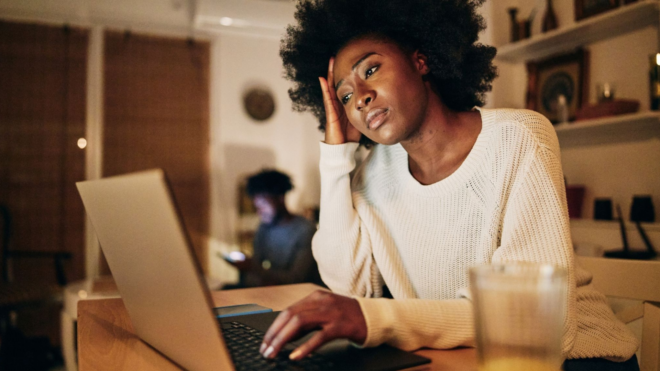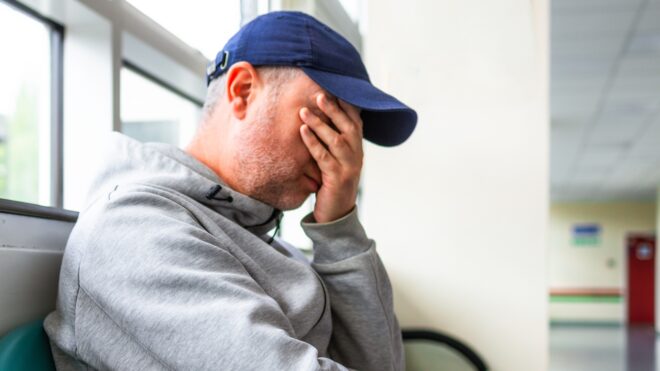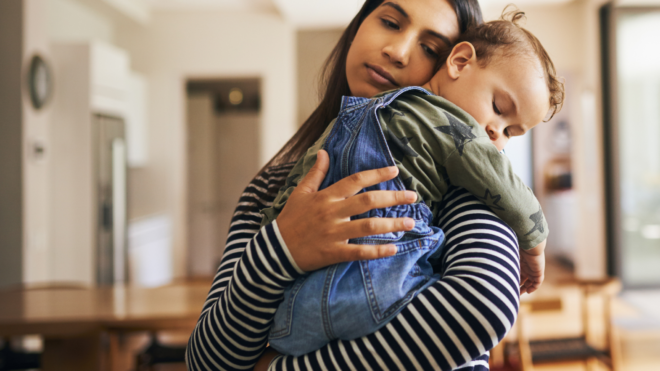By Rae Paoletta
Endometriosis is a daily battle most don't even know a person is fighting.
According to the Endometriosis Foundation of America, the condition occurs when "tissue similar to the endometrium (the lining of the uterus) is found outside the uterus on other parts of the body." It's more common than you think — in the U.S. alone, endometriosis affects 1 in 10 girls. Approximately 176 million women worldwide struggle with the disorder.
The pain of endo is more than physical symptoms like fatigue, pain, and bleeding. In addition to the constant barrage of "you don't look sick" comments, it can be a struggle to find a treatment, or doctor, that is the most effective. Women's health concerns are treated less aggressively then men's, despite the fact that women deal with more severe pain.
To bring visibility to this invisible illness, Revelist asked 14 women to share the one thing they wish others knew about their struggle with endometriosis. Here's what they had to say:
1. Jaimarie Gold, Los Angeles, CA
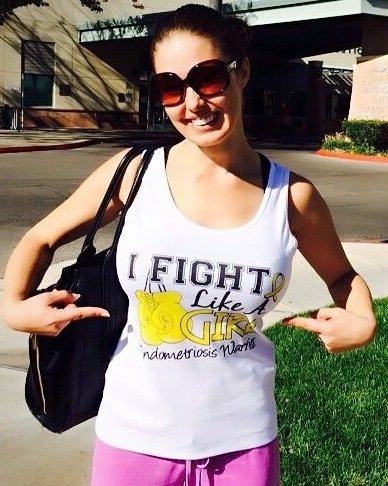
"I wish people knew [endometriosis] is so incredibly common and so often misdiagnosed. It is not just a heavy period; it can affect many different areas of your body and it does!"
"The most important thing with endo is having the right doctor that listens and truly knows about the disease because only then can they help."
2. Katie Awdas, 30, Prestwich, England
"Each day is different. One day I may be able to do everything a 'normal' person can and the next I can be in bed on five types of painkillers and unable to move."
3. Debbie, 27, Stockholm, Sweden
"I wish people knew how much I struggle with just the day-to-day interactions. My pain is manageable, but it's always there. Whenever I get a stab of it I hide it because I don't want to seem dramatic, but it's hard when it feels like I'm about to pass out."
4. Lottie L'Amour, 29, London, England
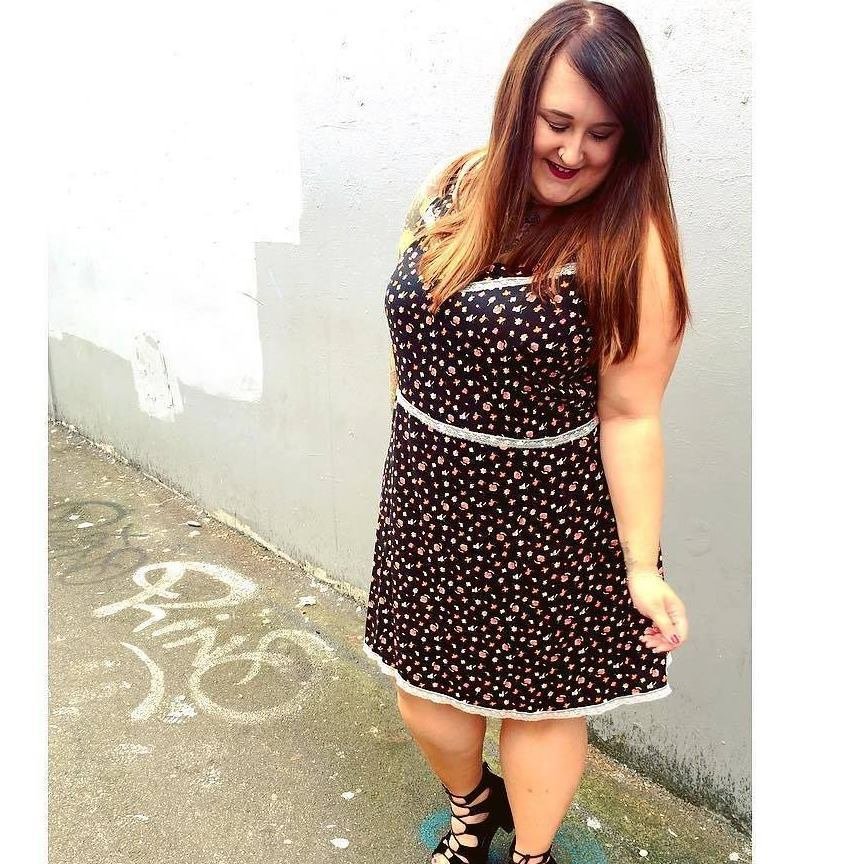
"I wish that people realized how much energy it takes to do things when you have a bad attack."
"When my Endo is bad, it affects my legs, my sleeping patterns, my mood, my stomach and my back. Dealing with the constant pain is tiring and doing simple things like showering and even eating takes up so much energy it can leave me bed bound all day. It's not as simple as just taking pain killers and getting on with things either — most pain solutions don't work for everyone and it takes a lifetime of trial and error to see what works best to take the edge off for you."
"Friends and work colleagues can struggle to comprehend why you need yet another bed day — I wish they could feel how it feels for just one day, I'm sure they'd never complain again!"
5. Sinead Kelly, 29, Scotland
"I wish people knew the severity and the suffering we go through.
"Because it's an invisible illness, it's so difficult to make people understand! 'You look fine' is something we hear all the time, even though inside we are struggling."
"I try to explain to family members, friends, work colleagues when I'm in pain and the reaction is usually, 'Aww, that's a shame.' We don't want sympathy, we want support."
"Having someone there supporting you, checking on you, helping out when you're having a flare is so important! Without that the other symptoms start to sneak in — anxiety, depression, etc."
"Every day is a real struggle, but because I 'look fine' I just have to get on with it and feel like I can't ask for help when I need it. It's a very lonely and isolating disease. Endometriosis is not just bad periods, it's a life altering agonizing condition that needs more awareness!"
6. Raina, 34, Portland, Oregon
"It would be nice if [endometriosis] was taken more seriously by people like employers because it can be hard to say, 'I'm in crippling pain over this,' and be taken seriously."
"I think because most people either don't know what it is, or know but realize so many of us have it, it can be hard for them to empathize."
7. Abby Norman, 25, Maine
"Here's what endometriosis is not: it's not a 'career woman's disease,' it's not a 'white woman's disease,' it's not even strictly a women's disease, because it's not only found in the reproductive system."
"Lesions have been found in brains, livers, and lungs. Men undergoing treatment for prostate cancer have had endometrial lesions as a direct result of estrogen therapy. What we don't know about endometriosis greatly outweighs what we do know."
"And if we want to understand the disease, understand how to better diagnose and treat it, we need to talk about it more inclusively. And not just for the sake of inclusivity, either: if we want to see more research being funded, if we want the scientific and medical communities to take interest, we can no longer frame it simply as a female problem. Historically, that hasn't been enough."
"While endometriosis certainly does have a life-altering impact on millions of women, that fact alone hasn't been enough to generate interest in finding a cure, or even a cause. We need to find a way to discuss endometriosis in a way that makes it of immediate interest to (largely male-dominated) research and medical communities: because so far, women's suffering just hasn't been enough."
8. Victoria Justice, 28, Bristol, England
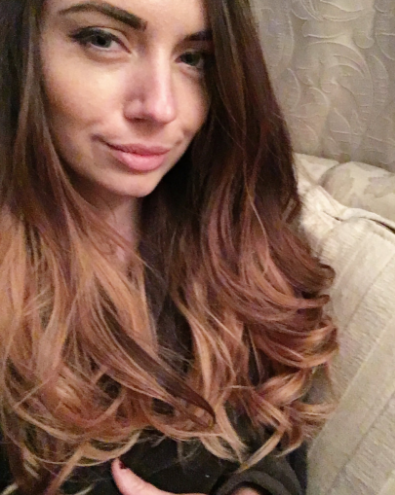
"The one thing I wish people knew about endo, is that endo is only the beginning (no pun intended)."
"Getting a diagnosis took me 10 years; and then the treatment started. Mine revolved around a highly addictive dependency forming drug called tramadol, which is an opioid. The same family as — yep — heroine."
"I had no idea that a drug, handed over by my doctors, would end up outstripping endo in the 'you're ruining my life' stakes. Four years and 4 stone, a few ruined relationships and friendships later, I'm starting to learn that every medicine has a price."
"I want more young women with endo to know it's fine to take whatever you're prescribed; but do your research. Some things are worse than endo. It's truly a daily life life changer; it's a marathon not a race, so be ready to change your mind."
"Oh and never ask a woman if she's pregnant; if you can't tell for absolute sure keep your mouth shut."
9. Claire Barker, 28, Hertfordshire, England
"The one thing I wish people understood about battling endometriosis is that it isn't 'just period pain.'"
"Through this disease I have lived with nausea, headaches, diarrhea, breathlessness, exhaustion, and severe pain throughout my body from my arms and back to my legs. It's also made me depressed and anxious. Living with these symptoms has negatively impacted on every part of my life."
10. Char, 41, Manitoba, Canada
"I wish people knew that you don't always have to feel symptoms if you have endo."
"I've always had a short cycle — 25 days — but never had real pain until after my first child. It took a long time to get pregnant with him and with my third, (though not with my second, presumably because I had her 6 months after my first and pregnancy helps endo). Anyway, it didn't really occur to me that there was anything wrong until I was trying for number three, when things started to get really painful and I experienced random bleeding."
Also, having a frozen pelvis is rare. Though in my case it has as much to do with scar tissue from C-sections as endo, they are linked. [My] doctor went looking for what she thought was a cyst after my third child and said, 'It looks as though someone stirred up your insides and then dumped crazy glue on the lot.'"
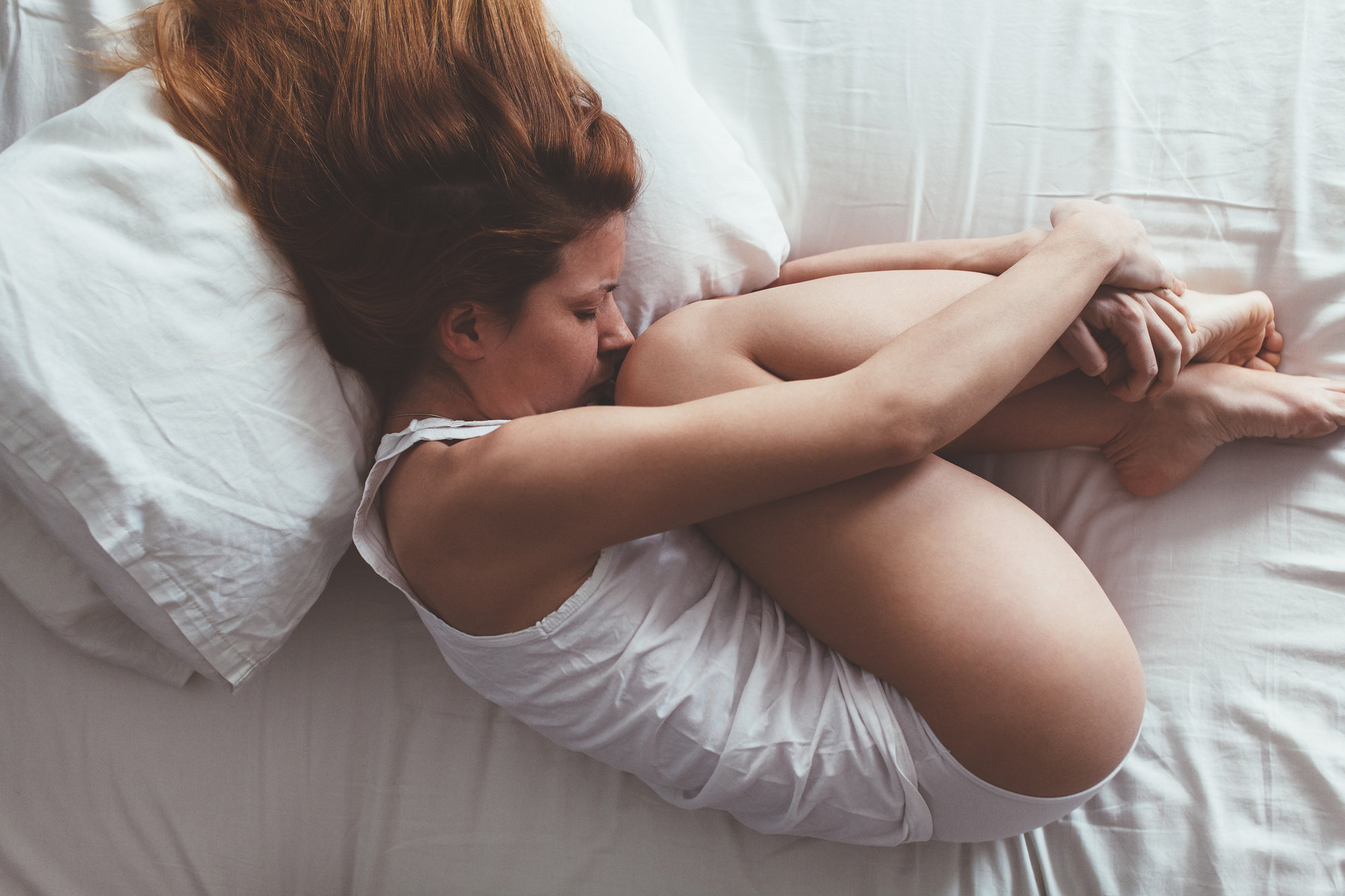
11. Maggie Owsley, 33, Oakland, CA
"I wish people knew it is a very isolating chronic illness, not only because it is 'women's health' which is already stigmatized, but chances are the person with endo has spent a long time dealing with it in private."
"It's also isolating because the pain varies from person to person and it's hard to share that and feel understood/heard about that."
12. Danielle Markes, 21, Northeastern U.S.
"I wish people knew how serious endometriosis is."
"Many people mistakenly believe that endometriosis is just "bad period cramps", and they treat you like a delusional teenager that just had her first period and is freaking out because she doesn't know how to deal with it."
"Endometriosis is a chronic condition that has robbed me of so much happiness. I've cancelled so many plans and disappointed so many people because of this disease. I've disappointed my managers at work because I have to keep calling off due to the crippling pain that leaves me unable to do anything but stay in bed, occasionally leaning over to vomit into a bucket."
"I've disappointed partners after telling them I can't have sex tonight because the jarring will cause the pain to get worse and make me bleed profusely…I've disappointed myself because the stigma of female reproductive health issues has made me feel like this is all my fault and I'm just overreacting for no reason."
"If you had a broken bone, cancer, or a head injury, people would understand how much you're suffering. They'd show empathy and want to help you. But when your condition is something that only female bodied individuals experience, and something that can't be clearly seen you get treated like you're just making it up and trying to get attention."
"You get treated like a burden when you seek medical intervention, and so many young women live through their teen years thinking that the pain is normal because they were born in a body with ovaries and a uterus. It's not fair, and it needs to be addressed. Endometriosis is serious and has ruined countless lives."
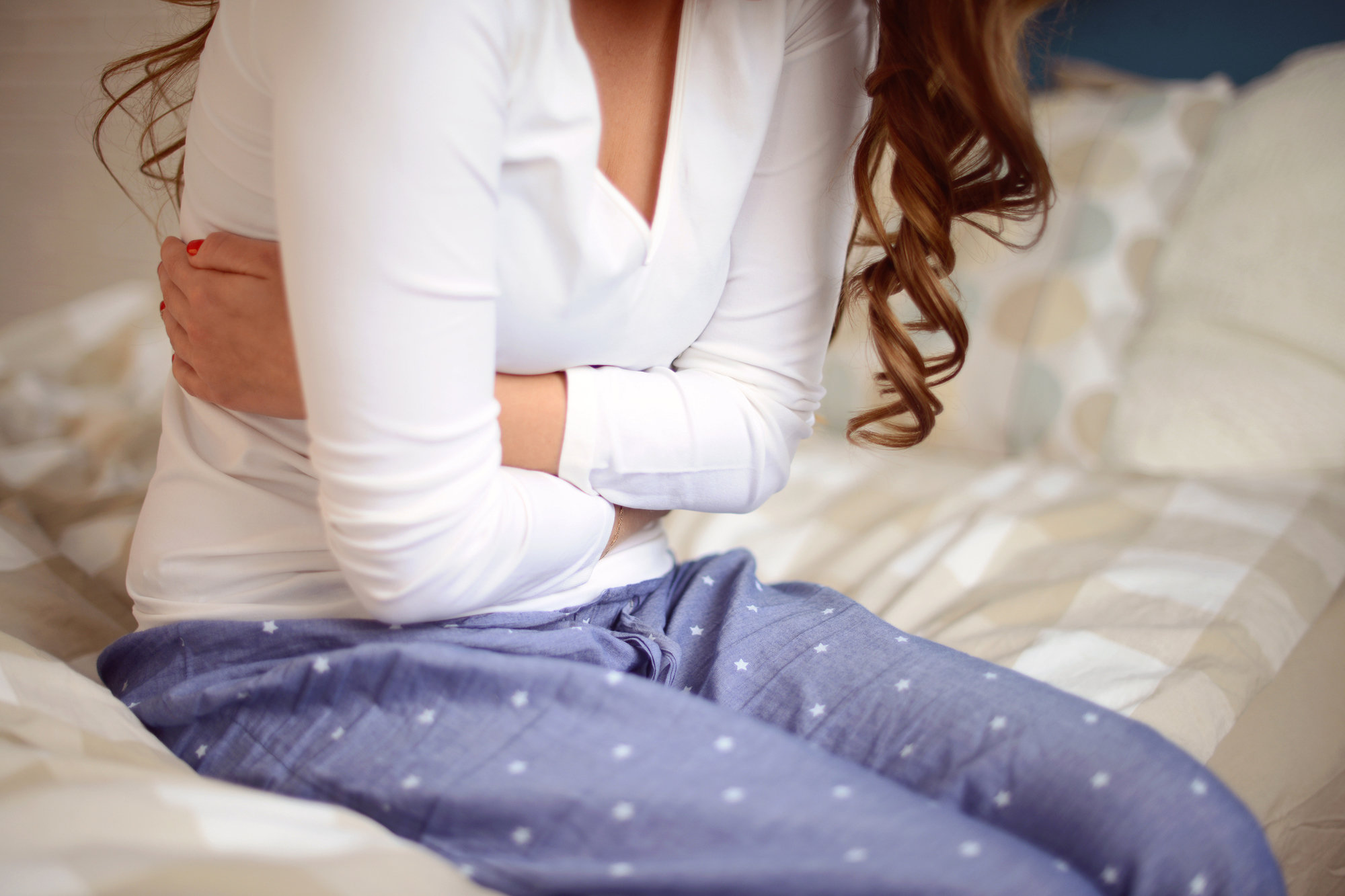
13. Janessa, 23, Salt Lake City, Utah
"I wish people understood how much further it goes than 'period pain.'"
"It truly causes chaos in your immune function, and for many like me, every day is a battle with the pain. And side effects from treatments that rarely help. We are a resilient bunch."
14. Amanda Palumbo, 23, Toronto, Canada
"I wish people knew that not all pain can be seen. Just because I look like a normal person doesn't mean my pain isn't real."
15. Dawn Slusher, 44, Virginia
"I wish people realized that the disease affects each individual person differently, even if they have the same stages and severe/advanced cases."
"I now realize through research and experience that one woman can have advanced disease as bad as mine and not be in much pain and she can function without difficulty, while another may have only a few lesions and be debilitated."
"Or, two women can have the same stage of disease with advanced and aggressive lesions throughout and one woman may be able to function while the other cannot. It has absolutely nothing to do with how hard either of them are trying."
"This is not a race and we are not in competition with each other to see who can be the superhero and who are the weak 'losers.' There's no such thing as either one with this disease."
"We are *all '*endosister' warriors who are doing the best that we can and each of our experiences deserves recognition and respect. For some, just getting out of bed to go to the bathroom can be the equivalent of running a marathon for another woman."
